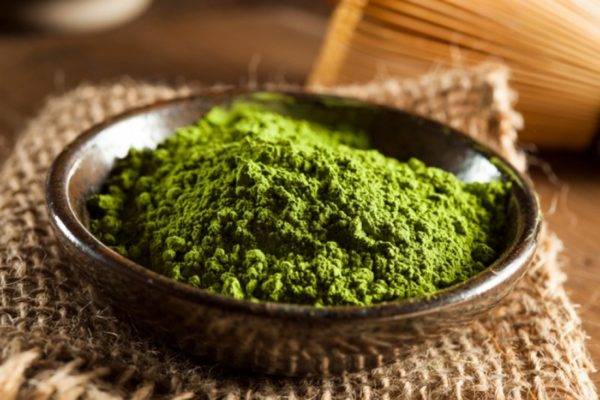Have you ever been surprised by a friend or family member’s negative reaction when they found out you use kratom? Did you feel unprepared to adequately respond to their criticism? Were you uncomfortable dealing with uneducated animosity, wild and unfounded accusations, and even insults?
Here are some tips that can help you explain kratom and put people at ease. When you have some basic facts about kratom, and understand better why some folks attack our wonderful herbal supplement, you’ll manage these situations with more confidence.

It’s unfortunate that anybody would want to persecute kratom like they used to persecute cannabis. When people were unfamiliar with the many medical benefits of these natural substances, they often had knee-jerk reactions. For example, they would call cannabis users “pot heads” or “dope smokers” to embarrass them and put them down.
But now that cannabis has proven to be a potential remedy for a variety of serious medical conditions, it’s less common that anyone will call marijuana a worthless drug that party animals use “just to get high”. Cannabis, with its potent CBD and THC components, is gaining a wider acceptance. This growing favor is based on how effective it is for possibly and effective it maybe treating ailments.
Kratom shows similar promise, as studies are finally being conducted on kratom as a beneficial plant that has been effectively used in Southeast Asia for hundreds of years.
Kratom is helping many people break free from heroin addiction, increase their energy and productivity, relieve chronic pain, overcome acute anxiety. Kratom also causes users to be far more friendly, sociable, and relaxed — while also enabling them to enjoy a normal, productive life.
There are many physical health blessings and mental wellness benefits associated with using kratom. But even though kratom is causing people to re-enter the workforce, be better parents, and live their lives to the fullest, there are people who oppose kratom and kratom users.
Why is this? Let’s look at the basis of kratom hate and how to counteract it.
But at the outset, be sure to not react in anger yourself. Be calm and kind. If they won’t listen to you, just walk away and consider not hanging around that person so much, if they’re going to persist in being antagonistic and judgmental. If you think they might patiently listen to reason here are some strategies you can use.
(1) First, the majority of kratom-haters tend to do no independent research. They are gullible and accept whatever they hear in the news and see on TV. Mainstream media is very much biased toward one of their biggest advertisers: Big Pharma. And Big Pharma fears kratom because if patients start using it instead of pharmaceutical opioids and benzos, Big Pharma will lose huge amounts of revenue.
So one way to respond to negative remarks about kratom, and hateful insults directed at yourself, is to do your own research. Google phrases like “kratom benefits” and “kratom success stories”. Learn about how others are using kratom and finding solutions to their medical issues. Memorize some of the most important facts and statistics about kratom.

(2) Kratom haters typically have unrealistic trust in orthodox medical science and pharmaceutical drugs. They look down upon herbs and natural treatments. They don’t understand how so much disease is caused by pollution, lack of exercise, diminished amounts of fruit and vegetables in diets, too much sugar, salt, and fats, and addiction to modern processed foods.
Tell the naysayers that hundreds of thousands of people die every year from FDA-approved pharmaceutical drugs, but not one single person has died from kratom by itself. Let them know that when fatalities are associated with kratom, the truth is always that the deceased person had hard drugs like Fentanyl, meth, alcohol, and cocaine in their system.
Explain how alternative medicine is gaining increasing numbers of adherents, because Mother Nature has so many wonderful curative powers in the plants that grown in our soil. Encourage them to consider how so many new diseases have arisen in the past 200 years that seem to arise from new toxins in our environment, including polluted air and water, and dangerous insecticides like Monsanto’s Round Up.
(3) People who oppose kratom often think kratom users are just like junkies and meth freaks. They think usage of kratom will result in a person becoming a lying, stealing bum who can’t hold a job and betrays all their family and friends.
Reveal to them how kratom has not had that kind of negative effect on yourself, or anyone you know who also uses kratom. Tell them about mounting piles of anecdotal evidence being presented to state and federal lawmakers about how kratom is enabling users to control their symptoms of pain, lethargy, and anxiety, in a normalizing way. Refer to the many examples of people getting their lives back in order thanks to kratom.
Here is a good NPR article to substantiate how kratom users are living normal, useful lives.
“Kratom Advocates Speak Out Against Proposed Kratom Ban” (September 12, 2016)
(4) Those who attack kratom don’t understand how different kratom is from heroin, cocaine, meth, crack, and other dangerous drugs. They may not know how kratom is taken or how intense the effects are. They might not understand that kratom is not a true narcotic and is not a hallucinogen.

Tell them how hard it is to overdose on kratom, since it has such a bitter taste, and if you took too much, you’d vomit it. Inform them on how kratom is scientifically called mitragyna specioso and is a member of the coffee family, though it contains no caffeine.
According to David Kroll, a pharmacologist and medical writer, farmers and indigenous people of Southeast Asia have used kratom for many generations as both a traditional stimulant to increase work output and also as an aid to relaxation and a good night’s sleep at the end of the day.
The leaves are often brewed like a tea, or crushed into powder and put into gelatin capsules, or swallowed by the teaspoon and washed down with water. In the U.S., kratom has become popular among people coping with chronic pain and others trying to wean themselves off opioids, benzos, or alcohol.
(5) Lastly, we must realize that some people are just bitter for their own personal reasons. They may be jealous of you and they don’t like to see you happy and successful. Or they’re know-it-alls who think their opinions are the only valid viewpoints.
In this worst case scenario, there is probably nothing you can say or do to change their minds. You must develop the interpersonal skill to pick up on this quickly. Otherwise, you’ll just be wasting your time and looking ridiculous. It’s like shouting at a brick wall.
Stubborn individuals who refuse to educate themselves are a very sad case indeed.

Sometimes they just like to troll and pick on people for sadistic reasons. Your kratom use gives them something to bully you about. Their stern rejection of kratom makes them feel superior, since they trust the FDA and Big Pharma, calling them “Science”, even though much of that “science” is conducted by universities who are funded by, and biased on behalf of, pharmaceutical companies.
You don’t have to deconstruct their facade or dismantle the flimsy foundation of their erroneous beliefs and irrational animosity.
You can just continue enjoying the many benefits of kratom. You can keep on living a satisfying, socially useful life. It’s their loss, not yours. But don’t let them keep attacking, ridiculing, or mocking you. If you need to get away from them due to their psychological toxicity, put a temporary or permanent distance between them and yourself, hoping that someday they’ll have a genuine change of heart and attitude.
Who knows? Some day they may experience severe pain, crippling anxiety, debilitating stress, or extreme lack of motivation. They may also be subjected to more and more information about the role kratom is playing is setting people free. That day they may remember your positive statements about kratom and decide to go ahead and give it a try.



